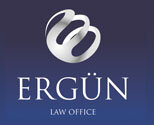Best Collaborative Law Lawyers in Alanya
Share your needs with us, get contacted by law firms.
Free. Takes 2 min.
Free Guide to Hiring a Family Lawyer
List of the best lawyers in Alanya, Turkey
About Collaborative Law in Alanya, Turkey
Collaborative Law is an alternative dispute resolution (ADR) process that allows parties, often in family or civil matters, to resolve disputes amicably outside of court. In Alanya, Turkey, this process is increasingly being used, particularly in matters such as divorce, child custody, and business disputes. The collaborative approach is characterized by open communication, voluntary information sharing, and a commitment to reach consensual agreements with the help of trained professionals, including lawyers and, sometimes, other neutral experts.
Why You May Need a Lawyer
Collaborative Law is designed for individuals who wish to resolve their disputes peacefully and efficiently, avoiding lengthy and adversarial court proceedings. People may seek legal help in the Collaborative Law process in Alanya, Turkey for several reasons:
- Divorce and separation: Reducing conflict, protecting children from litigation, and ensuring privacy.
- Child custody and support arrangements: Prioritizing the best interests of children with tailored agreements.
- Division of property and financial matters: Achieving fair settlements without the unpredictability of court decisions.
- Business partnership disputes: Preserving professional relationships while resolving disagreements.
- Inheritance or family business disputes: Maintaining family harmony and ensuring equitable solutions.
Lawyers trained in collaborative methods help ensure that agreements are fair, legally sound, and enforceable in Turkey.
Local Laws Overview
Collaborative Law in Alanya operates within the framework of Turkish civil law, specifically within family and contractual dispute domains. While Turkey has not yet codified Collaborative Law as a separate statutory process, it is practiced within the existing mediation and arbitration norms as encouraged by Turkish law. Local courts are supportive of settlements reached through ADR methodologies, and such agreements can be made legally binding once ratified by the courts. The collaborative process respects Turkish legal requirements for clarity, voluntariness, and informed consent, ensuring that both parties have legal representation throughout.
Frequently Asked Questions
What is the main difference between Collaborative Law and traditional litigation?
Collaborative Law focuses on cooperation and mutual agreement, rather than adversarial proceedings, with the parties working alongside their lawyers to resolve disputes out of court.
Are Collaborative Law agreements legally binding in Turkey?
Yes, once an agreement reached through the collaborative process is submitted to and approved by the court, it becomes legally binding and enforceable under Turkish law.
What types of disputes are most suitable for the Collaborative Law process in Alanya?
Most commonly, family law disputes (such as divorce and child custody) and business disagreements are resolved collaboratively when parties wish to preserve ongoing relationships.
How does the Collaborative Law process begin?
The process usually starts when both parties sign a participation agreement along with their lawyers, committing to work towards a settlement without going to court.
Can Collaborative Law be used if there is a significant power imbalance between the parties?
It depends. While collaborative lawyers are trained to address power imbalances and ensure fairness, severe inequalities may make litigation or mediation more appropriate.
What happens if an agreement cannot be reached through Collaborative Law?
If collaboration fails, the process ends, and parties can proceed to court. However, lawyers who participated in the collaborative process are generally disqualified from representing clients in subsequent litigation.
Are collaborative lawyers different from traditional lawyers?
Collaborative lawyers receive additional training in negotiation, communication, and conflict resolution to facilitate cooperation rather than confrontation.
How long does the Collaborative Law process usually take?
The duration varies depending on the complexity of the issues but is typically shorter than court proceedings, often resolved within a few months.
Do both parties have to agree to use Collaborative Law?
Yes, Collaborative Law requires the voluntary participation and agreement of all parties involved in the dispute.
Is the process confidential?
Yes, discussions and documents prepared as part of Collaborative Law proceedings are generally kept confidential, unless the parties agree otherwise or disclosure is required by law.
Additional Resources
If you require further support or information on Collaborative Law in Alanya, Turkey, consider reaching out to the following resources:
- Alanya Bar Association - For referrals to qualified collaborative lawyers.
- Turkish Ministry of Justice - Information about alternative dispute resolution and legal processes.
- Family Courts in Alanya - For guidance on legal recognition of settlement agreements.
- Mediation Centers in Alanya - Some centers offer collaborative law practitioners as part of their services.
Next Steps
If you think Collaborative Law might be right for your situation in Alanya:
- Consider your priorities: Do you want to resolve your issue amicably and maintain ongoing relationships?
- Seek advice: Consult with a lawyer in Alanya experienced in Collaborative Law to assess your specific case.
- Prepare to participate: Collaborative Law requires openness and willingness to engage in good faith negotiations.
- Initiate the process: With your lawyer, contact the other party and suggest starting the collaborative process.
- Follow professional guidance: Work closely with your lawyer and any other professionals to reach a fair and lasting agreement.
Engaging in Collaborative Law can often lead to more amicable, faster, and cost-effective resolutions. Taking the first step by consulting a qualified lawyer ensures your rights and interests are safeguarded throughout the process.
Lawzana helps you find the best lawyers and law firms in Alanya through a curated and pre-screened list of qualified legal professionals. Our platform offers rankings and detailed profiles of attorneys and law firms, allowing you to compare based on practice areas, including Collaborative Law, experience, and client feedback.
Each profile includes a description of the firm's areas of practice, client reviews, team members and partners, year of establishment, spoken languages, office locations, contact information, social media presence, and any published articles or resources. Most firms on our platform speak English and are experienced in both local and international legal matters.
Get a quote from top-rated law firms in Alanya, Turkey — quickly, securely, and without unnecessary hassle.
Disclaimer:
The information provided on this page is for general informational purposes only and does not constitute legal advice. While we strive to ensure the accuracy and relevance of the content, legal information may change over time, and interpretations of the law can vary. You should always consult with a qualified legal professional for advice specific to your situation.
We disclaim all liability for actions taken or not taken based on the content of this page. If you believe any information is incorrect or outdated, please contact us, and we will review and update it where appropriate.









